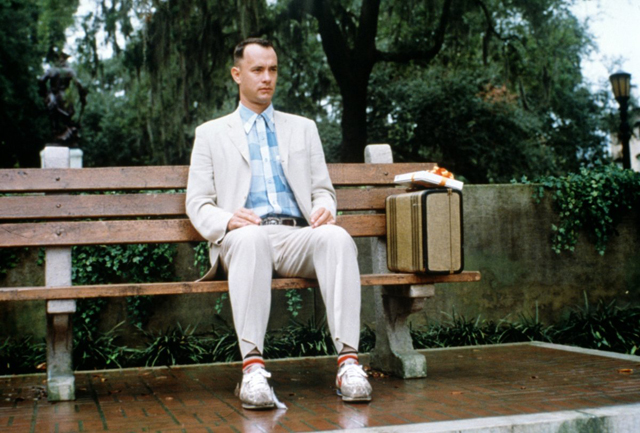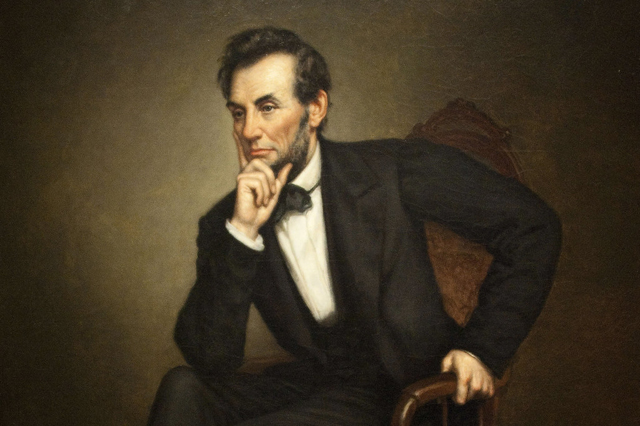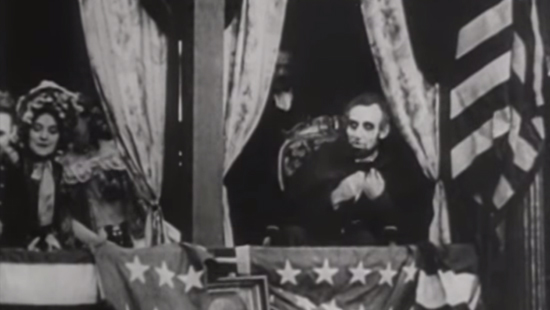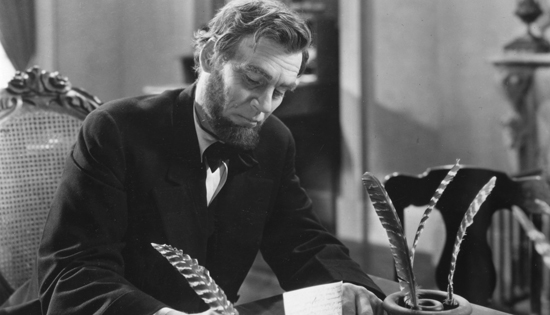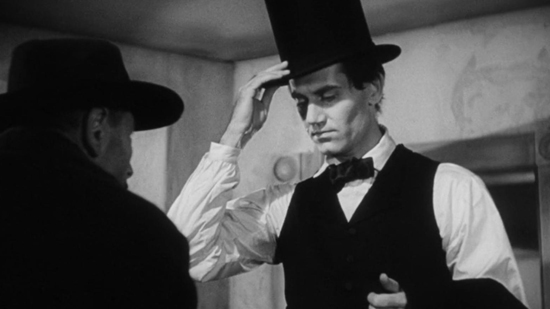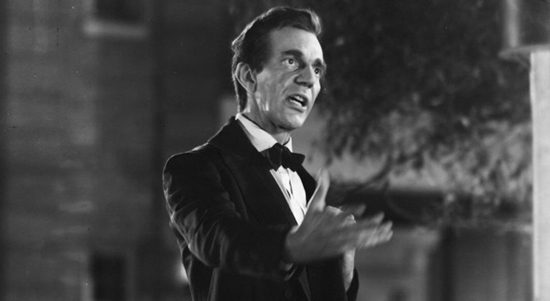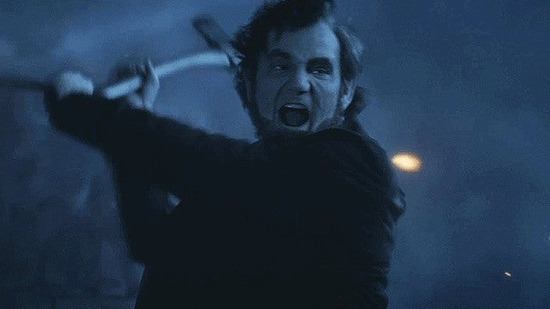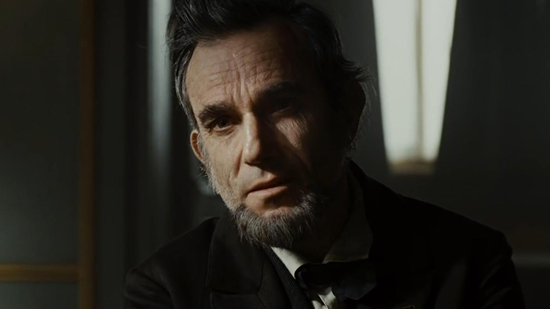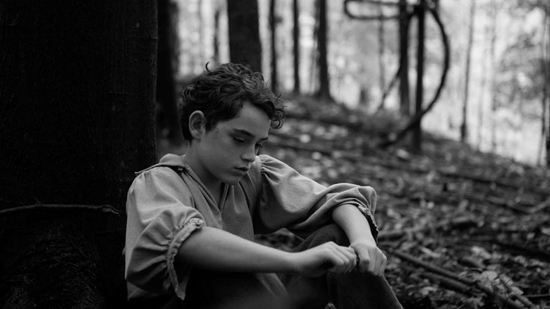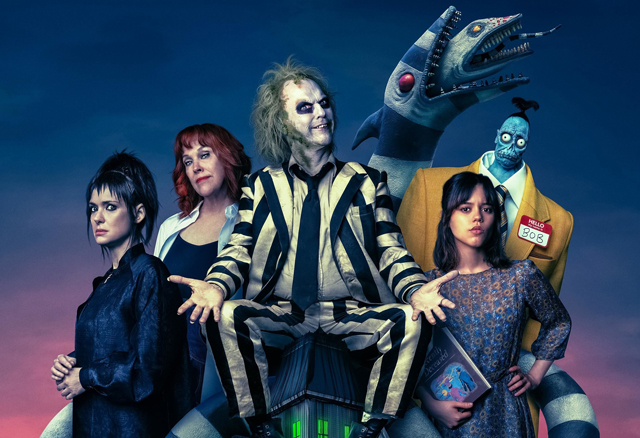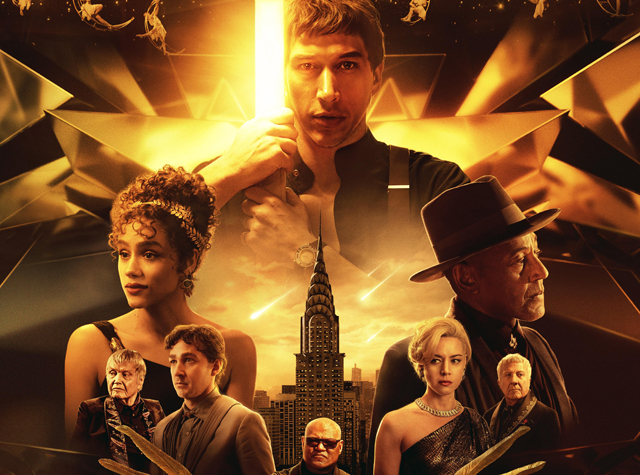
There are many reasons why Francis Ford Coppola has been dubbed the “Godfather of Cinema.” Of course the main reason is because he made the Godfather movies, but he has also earned the title because he was also a crucial figure in the re-shaping of cinema as we know it. He was one of the batch of filmmakers that came to be known as the New Hollywood movement in the 1970’s, which steered the industry away from the old studio system and more towards auteur driven projects that were less glossy and more gritty. While Coppola may not have been the one to start the movement, he was certainly the one who turned it into a powerful force, with The Godfather (1972) and The Godfather Part II (1974) both rising out of this new style and becoming successes at both the box office and during awards season. In the meantime, Coppola also steered himself away from Hollywood itself, choosing instead to craft his own mini industry in his home base of San Francisco. His American Zoetrope company was a truly independent studio of it’s own, with it’s own soundstages, facilities for editing and post production, giving for the first time a Hollywood style level of filmmaking services outside the confines of Hollywood itself. But, with that incredible progression of growth, there was inevitably going to be a fall of from grace too. While Coppola did manage to achieve accolades for his ambitious war epic Apocalypse Now (1979), the production was a chaotic mess that began to take it’s toll on Coppola’s reputation in Hollywood. And then the box office failure for the musical, One from the Heart (1981), put his company in a financial bind. Coppola would work throughout the 80’s and 90’s on much smaller productions that while they did pay the bills and were generally well received they also were safe and not the kind of bold artistic statements that he used to make. In that era, only Bram Stoker’s Dracula (1992) stood out as an artistically daring movie. After 1996’s The Rainmaker, Coppola left filmmaking behind to focus more on his growing wine making business.
But, during those years in the wilderness, there was always this idea that was occupying his thoughts. Coppola had long dreamed of making a Roman style epic, but have it set in modern day America. His ambitious story would concern the theme of rising and falling empires, the disconnect between the patrician and plebian classes, and the new civilizations that grow out of the ashes of the old. He dubbed this story, Megalopolis, and it was a story that was bold in concept but highly difficult to sell to potential investors. Coppola would continue to work on the film periodically, but as the industry was changing and largely leaving him behind, the hopes of making the film a reality also diminished. For the longest time, among fans of Coppola’s oeuvre, Megalopolis became this mythic thing; an unrealized project that we could only speculate what it may have been. But, Coppola never gave up hope on it. In the late 2000’s, Coppola regained some of his creative spark, and made three small scale films that while nowhere as ambitious as his earlier film were nevertheless granted him the creative freedom he desired; Youth Without Youth (2007), Tetro (2009) and Twixt (2011). But even with that late career resurgence, Hollywood still wasn’t interested in investing in Megalopolis. As Coppola has entered his mid-eighties, he was at the point where he knew that if he wasn’t going to make Megalopolis now that it would never get made at all. So, he took the drastic measure of self-financing Megalopolis himself, to the tune of $120 million. To accomplish this, he sold half of his wine making business, which was a sacrifice he was willing to make since his own grown children were uninterested in inheriting it, given that they’re all successful filmmakers like him. And now, with a good chunk of his fortune poured into the film, the once impossible dream of Francis Ford Coppola’s Megalopolis is finally a reality and making it’s debut on the big screen. The only question remains, was it worth all of the wait and the many years of hype.
The story takes place in a heightened version of New York City named New Rome. New Rome has been going through many years of decline due to a volatile economy, and it’s up to a select few to fix it’s crumbling infrastructure. Unfortunately, two sides are at wat over the vision of the future. On one side is Mayor Franklyn Cicero (Giancarlo Esposito), who is inclined to keep the city budget minded and exactly as it is. On the other side is popular architect Cesar Catilina (Adam Driver) of the New Rome Design Authority, who has won the Nobel Prize for creating an environmentally adaptive building material known as Megalon. Cesar’s dream of a utopia clashes with Cicero’s more pragmatic plans for the crumbling city, But, the mayor’s daughter Julia (Nathalie Emmanuel) doesn’t agree with her father’s vision, and finds herself seeking to help Cesar fulfill his utopian dream. Both rivals desire the favor of a patron in the form of New Rome resident and richest man in the word, Hamilton Crassus III (Jon Voight), who’s also Cesar’s uncle. Unfortunately for both Cesar and Cicero, there are troublemakers seeking to disrupt the power structure of the city by exploiting the old man and his money. One is Wow Platinum (Aubrey Plaza), a former news anchor who was once Cesar’s estranged girlfriend and is now the new wife of Hamilton. The other is the old man’s grandson, Clodio Pulcher (Shia LaBeouf) who is interested in stoking up the resentful working class people in a rebellion against the people re-shaping the city, manipulating them to his own benefit. While Cesar continues to draw up plans for his utopian vision of the city, he and Julia form a relationship that becomes more romantic over time. But there is a dark secret to Cesar’s past that continues to haunt him and force him deeper into substance abuse. Even under the observant eye of Ceasr’s assistant Fundi Romaine (Laurence Fishburne), Cesar can still let himself go too often and that creates an aura of scandal around him that could derail his vision. Will Julia be that calming influence that helps Cesar literally re-shape New Rome into a modern utopia, or will the wolves at Cesar’s door be able to destroy him and wreck havoc on the city as a result.
I was one of those observant cinephiles who had heard of this mythic production called Megalopolis, and I would say I’ve probably been aware of it maybe for over twenty years. The genesis of the project went even further back, but by the time I started to hear about it, it still hadn’t advanced more than just a title and an outline of the concept. For many years, I wondered like many about what Francis Ford Coppola was cooking up for us. The idea sounded bold, and I was really eager to see Coppola go for something big again like he did with the films of his glory days, But, as the years went on and Coppola distanced himself more and more from Hollywood, it seemed like Megalopolis was just going to be one of the great never made films in movie history. So, color me surprised when I learned that Megalopolis was indeed being made. With nothing left to lose, Coppola is taking one last big swing as a filmmaker and getting this dream project across the finish line before he himself has left this world behind. That in itself is admirable, and I’m just glad that I can now actually see this mythic film for myself. So, was it worth the wait. Well, the answer is going to be a complicated one. The film, I would say is objectively bad. It is a colossal mess in terms of story, tone, and just general common sense with regards to logic. But, is it also entertaining? Absolutely. In a strange way, everything that made this movie awful is also what kept me interested. I was never bored watching this movie, and it’s probably one of the craziest movie experiences I’ve ever had in a theater. This movie was a self-financed passion project and it shows; we are seeing Francis Ford Coppola’s unvarnished creative mind on display in all of it’s unfocused glory. There is so much going wrong with this movie that it somehow goes all the way around and becomes it’s own beautiful thing.
There’s no doubt in my mind that many people are going to hate this movie. Anyone expecting this to be another Godfather like masterpiece will be very disappointed. This is a Coppola that is far closer to the gonzo weirdness of Apocalypse Now, though I will say it’s still no where near as masterful as that movie managed to be. Apocalypse Now managed to somehow come together into a coherent narrative, but Megalopolis is far from coherent. So much of the movie does not make sense. Cesar has the ability to control time. Is it ever explained why? Nope, and it doesn’t even have a purpose to play in the story itself. Megalopolis is full of these incongruent elements, all thrown together into this melting pot of ideas that Coppola’s trying to force together into a story. Francis’ overall thesis about this movie is that he wants to spark a debate about what should be done about our future. But, he sadly undermines his own message by throwing so many ideas at us that it all gets muffled amidst all the noise. And yet, there’s so much creativity abound in all the madness of this movie. This movie really is unlike any other film I have seen. At some points of the movie, there are moments that genuinely soar and show what the potential of the film could’ve been had there been more of a focus to it. While this movie can in no way fall within the same category of beloved epics of the past, I do feel that it does stand out as something bold and original, which is welcome in a Hollywood market that has grown more homogenous in recent years. It’s hard to tell if Coppola is aware of the oddball nature of this movie. There are a lot of moments that I think were unintentionally hilarious that Coppola had maybe intended to be taken seriously. But, then he’ll have an intentionally funny moment, and it’ll be actually funny. So, I wonder if the weirdness was intentional and all of the abrupt tonal shift were actually all meant to be farce after all. The movie is such a hodgepodge, I honesty could not peg down what Coppola was doing at all.
There’s definitely a lot to be said about the performances as well. Anyone who accepted a role in this film must be commended for their bravery, because it must not have been easy. Nobody talks like a real human being in this script; the whole thing is heighted with characters speaking in these grandiose terms and with grand soliloquies. But, some actors are better equipped than others. For one thing, I think the only leading man you could ask for to carry a movie like this is Adam Driver. Driver has chosen to act in some very out there films recently, and he’s committed himself to the craft no matter how bizarre the film or role may be. He brings that kind of energy to the role of Cesar Catalina, taking it big when he needs to go big, but also finding the moments to reign it in find the subtlety in the character when it’s called for. While the character ultimately gel together on the page, with Coppola making him too enigmatic, Driver at least gets the job done in his performance. He’s also got a great match in Giancarlo Esposito. His performance as Cicero may be the best in the entire movie, because it’s the most grounded. He definitely captures the grandiose nature of the character, but also finds the ability to make him feel like a real person as well, unlike so many of the other characters that come across more like caricatures. The supporting roles are the most bizarre in the film. Aubrey Plaza is really vamping it up as the character Wow Platinum, in a performance that leave no room at all for subtlety. And the fact that she goes whole hog with this character makes her performance pretty fun to watch. Shia LeBeouf is a bit more mixed, as he’s trying to be a bit more method while at the same time playing a character that’s supposed to be wildly erratic, and the mix doesn’t always work; though there are flashes of entertaining moments from him here and there. And I honestly don’t know what Jon Voight is doing in his performance, but I’ll say this, he has one hell of a final scene that was ballsy for an actor of his age to be a part in.
With a $120 million price tag, you would imagine that a lot of that had to go into the visuals. For quite a bit of the movie, Megalopolis is a visually impressive movie. In terms of costuming and cinematography, the film does have some incredible craft behind it. The film was shot by DP Mihai Malaimare Jr., who has worked on films as varied as Paul Thomas Anderson’s The Master (2012) and Taika Waititi’s Jojo Rabbit (2019), as well as shooting all of Coppola’s last three films. He manages to create some really beautiful shots throughout the movie, including a romantic scene that takes place among hanging steel beams high above the skyline of the city. He also incorporates many beautiful uses of lighting, especially during some of the more dreamlike moments of the movie. The costumes used in the film also are well crafted, giving the film it’s best connection to the underlying theme of this being a modern day Roman Empire. The suits that the men wear all have these capes that the characters fling over their shoulder like the togas of a Roman senator, and the women’s dresses also carry over that Roman aesthetic, in a nice visual connection contributed by designer Milena Canonero, who had previously done costumes for another member of the Coppola family in Sofia Coppola’s Marie Antoinette (2006). But, even with a $120 million budget, the film’s ambition seemed to still test the limits of the budget, and that unfortunately leads to some visual effects that don’t entirely work. There’s a heavy use of some very obvious green screen that comes across as clunky in the final look on screen. Also, the ill-defined substance Megalon that is supposed to be this game-changing building material never comes across as tangible and also it looks like a very low quality digital effect from decades ago. But, as bad as some of the visual effects come across, there is still a sense of ambition behind all of it. Coppola put his own money behind his vision and there are moments where the film does carry across some striking visuals. The sequence with giant stone figures coming to life and growing weary may be a ham-fisted metaphor in the film, but it is visually striking at the same time. It goes along with so much of what the rest of the movie represents; it’s messy, but it is also unique.
The best thing that I can say for Francis Ford Coppola’s Megalopolis is that it will be remembered. Whether that will be either infamously or lovingly is up for debate, but I am sure that anyone who sees this film will never forget it. It is just this weird, anomaly of a movie that could only exist through the sheer will of a legendary filmmaker investing everything he has into it. He may burn through more good will with casual filmgoers as a result, but he got this dream project to the finish line in his twilight years and that seems to be the goal in the end. He’s not seeking to reclaim past glory and put himself back on top in Hollywood. He wanted to make this movie for most of his career, and he lived long enough to see it through, and now it belongs to the world. He’s not looking for the awards season gold anymore. And he’s also very well aware that this movie will not see a return on investment, as the box office looks to be pretty weak. It shouldn’t be surprising, given that he had trouble convincing any studio to help distribute the film, before Lionsgate ultimately stepped up. It may be a box office flop, but I can see this film finding a cult following in the years ahead. While the movie may have been a colossal mess, it did manage to entertain the audience at my screening. They were laughing pretty consistently throughout at all the weirdness of the movie, including the clunky dialogue and the unexpected tonal shifts. Every time you think the film has peaked with it’s craziness, it somehow finds another way to go a level beyond that, and that kind of is impressive. I don’t think it will tarnish Coppola’s reputation at all; the Godfather movies and Apocalypse Now are still undeniable masterpieces that will continue to shine a bright light on Coppola’s legacy. But I am happy to see him trying to swing hard at his advanced age, even if also becomes a big miss. Megalopolis may be a mess, but it’s a very beautiful mess that gave me one of the best and most insane theatrical experiences I’ve had in a long time. It’s almost impossible to really rate it like usual because it almost defies a quantitive value. As a story, it is without a doubt in a 4/10 range, but as a theatrical experience, I would put it near an 8/10 or even a 9/10, just based on how much fun I had. To split it down the middle, I’m giving the one below which is about how I feel as a whole. In the end, it was worth the wait even with all those flaws I mentioned. It’s no where near a masterpiece, but in a way I kind of love the movie for being an uncompromised work of originality that only a great, legendary filmmaker can make.
Rating: 7/10
